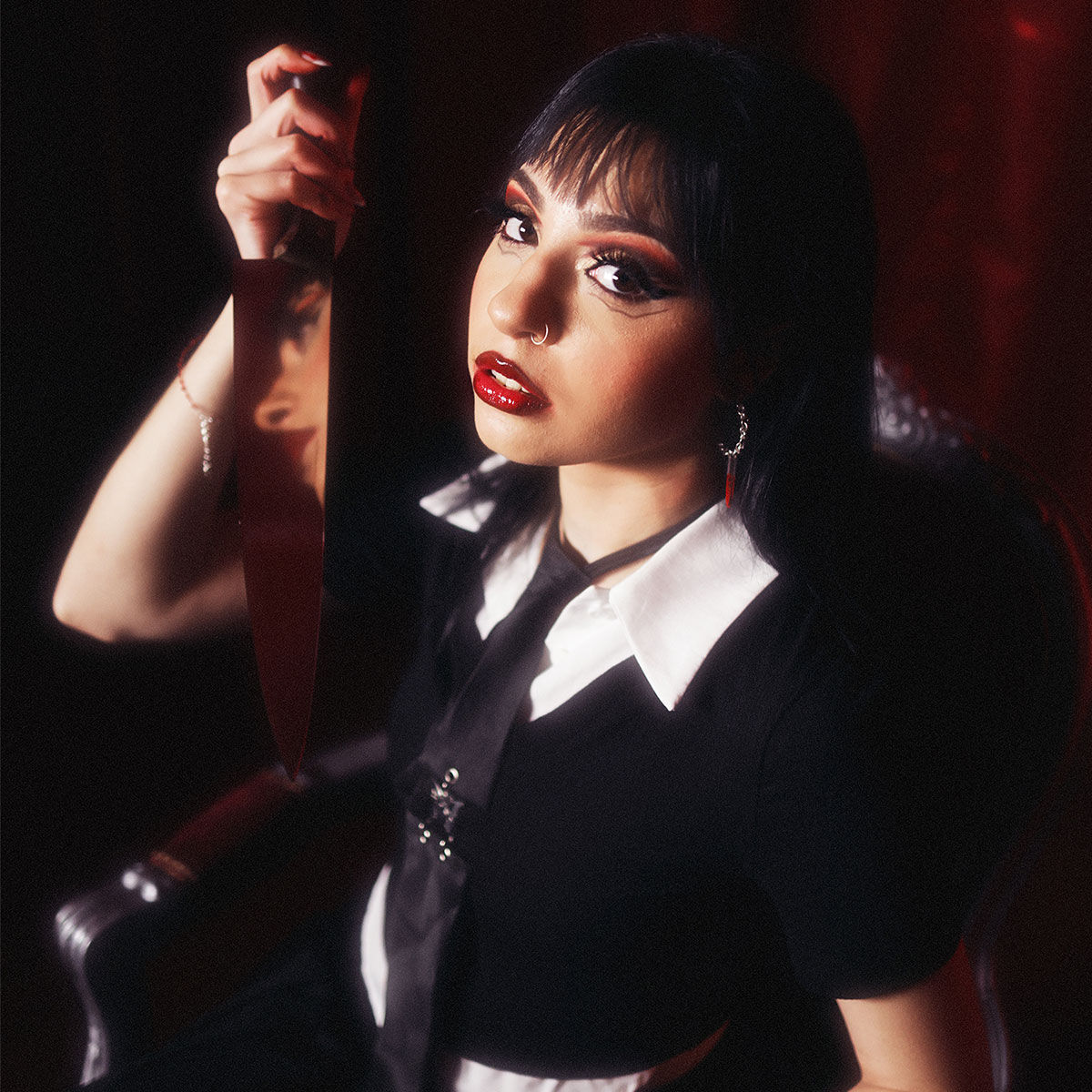It requires a particular kind of audacity to shout in a language rarely heard in punk and expect people to listen. mxja! does precisely that.
"My Sudanese heritage influences everything I do—the rhythm, the rebellion, and the sense of longing."
Arabic punk emerged from lived necessity, shaped by conflict and displacement. Blending Arabic with punk, mxja! admits, has been "a bold experiment." "It is a challenge to stay authentic while introducing a language rarely heard in the genre," he explains, "but it has opened space for people like me to feel seen."

His lyrics bleed with memoir. Songs come from what he calls "a lyric, a memory, or a feeling I am going through." The production builds from there, raw and unsanitized. What emerges feels more like an unfiltered purge than a performance, asking nothing but to be witnessed.
The visuals are equally visceral. Directed by close collaborator Omar Khalid, the music videos translate inner chaos into grainy, calculated rebellion.
"I trust him fully to turn my emotions to the world through his lenses and eyes."
According to a 2023 Nielsen report, punk music accounts for less than 1% of global music streams. And yet, subcultures are often where culture starts. mxja! recognizes this. "Arabic punk came from a need to express raw emotion in my own language," he says. His aim is to bring it into the MENA mainstream—not for fame, but for youth "who feel misunderstood or unheard."
If his moniker—styled lowercase, with an exclamation point—suggests a glitch in the algorithm, that is entirely the point. He wants to be seen, but on his own terms. As he puts it,
"I want to be 'Voice Of The Youth.'"
He writes about war, addiction, and identity not as abstract issues, but as coordinates of his own life. "Going through rehab and constantly relocating due to war shaped my identity," he says. He does not disguise the bruises. "Facing hate, isolation, and recovery has pushed me to create from a place of self-acceptance."
He sees growth in the messages that say his songs made someone feel less alone. "Growth is when someone messages me saying a song helped them feel less alone. That matters more than numbers."
There is something nearly ancient in the way he views artistic influence. Cui bono? Not the charts. Not the platforms. The listener. And his former music teacher. "Nuha Ahmed believed in me early on," he says. "She reminded me that being yourself, fully and unapologetically, is the most powerful thing you can be as an artist."
He offers no apologies for the contradictions—a punk artist who cares deeply, a performer who avoids spectacle, a rebel grounded in res publica. The stage compels him to confront what others might prefer to escape.
"I stay true to who I am and let the emotions translate globally," he says.
"If you are real enough, people will connect even if they do not understand every word."
There is a bit of Billie Eilish in that ethos—the idea that emotional fluency surpasses linguistic fluency, that mood can translate even when words do not. Except mxja! brings with him the weight of a region, a genre, and a generation underrepresented.
He is not here to play nice. Nor should he be. His work resists easy answers and market-ready anger. It remains present. Resistant.
Which, as far as punk goes, might be the closest thing to a magnum opus this decade will hear.

REGIONAL is musivv’s segment featuring Arab artists in the Middle East. Features under this segment are considered as submissions for nomination under this category in the Musivv Awards’ annual recognition.














